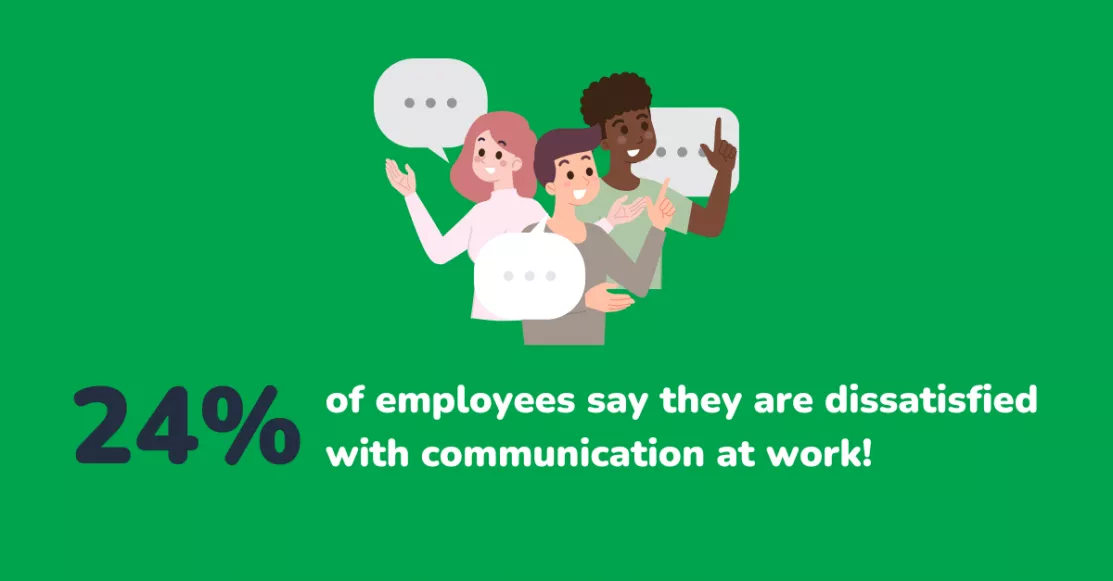Effective communication is a vital component of any successful workplace. Whether between coworkers, managers, employees, or with customers and clients, communication plays a critical role in the day-to-day operations of any business. Communication is essential for achieving common goals and promoting teamwork, from exchanging ideas and sharing feedback to resolving conflicts and collaborating on projects. The capacity to communicate effectively has grown in importance in the fast-paced, constantly-changing workplace of today. Employees are no longer restricted to typical office settings thanks to the growth of remote work and digital communication tools. As a result, communication skills are even more essential for success. Instead, they can interact and collaborate from anywhere in the world.
The Role of Communication in Workplace Productivity

The efficiency of the workplace can be increased in large part by enhancing communication. Employees can share ideas, provide feedback, and work more successfully when they can properly communicate with one another. This can therefore result in quicker problem-solving, more effective decision-making, and ultimately better results. For context think about a team engaged in a challenging assignment. When team members communicate effectively with one another, they may share their unique knowledge, generate fresh ideas, and collaborate to find solutions to issues. Alternatively, the team may work in units, duplicate efforts, or miss critical information if communication is inadequate, which can cause delays and mistakes.
Making sure that everyone understands the goals and objectives is another benefit of effective communication. Larger businesses, where many departments or teams may be working on various areas of a project, should pay particular attention to this. Employees may ensure that everyone understands their role in the project and how their work contributes to the broader goal by communicating clearly and effectively. In addition, effective communication can help to reduce misunderstandings and errors. When employees are clear in their communication, they are less likely to make assumptions or misinterpret information, which can lead to costly mistakes.
The Impact of Effective Communication on Employee Morale and Engagement
The effectiveness of communication affects not only workplace efficiency but also employee engagement and morale. Employees are more likely to feel valued and interested in their work when they believe that they are being heard and that their ideas count. Good communication also promotes transparency and trust, which are crucial for creating a positive work environment. When employees feel that they can trust their colleagues and managers, they are more likely to be open and honest in their communication, which can help to prevent conflicts and build stronger relationships.
On the other hand, ineffective communication can result in employee misconceptions, mistrust, and dissatisfaction. This can then result in a drop in morale and engagement, which can negatively affect staff productivity and overall company success. Employee retention and satisfaction can both benefit from effective communication. Employees are more likely to be content with their jobs and are less likely to explore possibilities elsewhere when they feel like they are part of a supportive and open team.
The Cost of Poor Communication in the Workplace
One of the most significant costs of poor communication is time wasted. Misunderstandings and miscommunications can lead to duplicated efforts, delays, and rework, all of which can take up valuable time and resources. Poor communication can also result in opportunities being lost, both inside and indirectly. For instance, if staff members are not properly talking with one another, they can pass up chances to work together or communicate crucial information.
Poor communication can also lead to conflicts and misunderstandings, which can be costly to resolve. This can include legal costs, loss of productivity, and damage to relationships, all of which can have a significant impact on a business's reputation and success. Last but not least, a lack of effective communication can result in costly employee turnover for companies. Employee disengagement or job-hopping may result from a lack of communication or a sense that they are not being heard, which increases the expense of hiring and training new hires.
Training and Development: Using Training to Improve Communication
One way to improve communication in the workplace is through training and development programs. These programs can help employees to develop the skills they need to communicate effectively with their colleagues, managers, and clients.
By investing in training and development programs that focus on communication skills, businesses can improve communication and collaboration among employees, leading to increased productivity, better decision-making, and stronger relationships with clients and customers. There are several types of training programs that can be used to improve communication skills, including:
- Communication Skills Training: This type of training focuses on developing skills such as active listening, assertiveness, and effective feedback. These skills can help employees to communicate more clearly and effectively with others.
- Conflict Resolution Training: Conflict is a natural part of any workplace, but it can be managed effectively through training programs that focus on conflict resolution. These programs can help employees to develop the skills they need to resolve conflicts in a constructive and productive manner.
- Cultural Competency Training: In today's globalized world, effective communication requires an understanding of different cultures and communication styles. Cultural competency training programs can help employees to develop the skills they need to communicate effectively with colleagues and clients from diverse backgrounds.
Why OrangeHRM?
With OrangeHRM, training your employees becomes a breeze. The platform offers the seamless creation of online and offline training programs, allowing you to train individuals or groups with ease. The platform also features tools to help you track employee engagement and participation in training and gather feedback on its effectiveness. Experience easy and efficient employee training with OrangeHRM book your FREE demo today!
